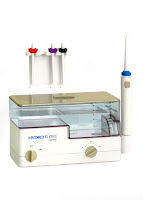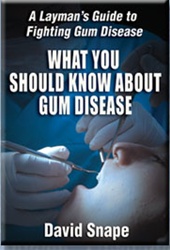
The first thing you really need to understand is that your gums should NOT bleed with normal brushing and flossing. That's just not good.
You may have gum disease. You want to go to a periodontist and get a proper diagnosis. This is important.
If you have gum disease
If you have gum disease, you are not alone. 3 out of every 4 people have some.
This is one of the most widely spread problems that afflicts mankind. But, just because that is true, does not mean that you should except it BECAUSE:
Gum disease is also the number one reason that people lose their teeth
Here is a nice protocol you can try
This is contingent upon approval and monitoring by your periodontist or dentist. This is always important to make sure that true improvement happens and that things don't go out of control.
Find out what your current periodontal pocket depths are. This is something your dentist can tell you. Generally speaking, anything above 3mm is considered problematic by most dental health providers. Conversely, 3mm and below is, generally speaking, considered healthy.
Therefore the end goal is to get to 3mm and below - as measured by your dentist or hygienist! \
Try this
After you know what your pocket depths are and you have approval from your doctor to try this:
1.
Use the Hydro Floss - two reservoirs / twice per day for at least 1 month
2. Have your dentist measure your pocket depths again. Completely better? Or, making improvement? GREAT - keep going and maintain once the goal is completely achieved.
If you are one of the few that this doesn't work for (hey, nothing works for everyone) your dentist will offer you a treatment plan. But, trying this first has the POTENTIAL to save you a lot of money!
Sound confusing or complicated?
Yes, I think it can be both confusing and seem complicated when exposed to new information that you didn't have before. You may very well have questions such as: Why has no one pointed this out to me before? Or: It sounds great, but I don't quite understand everything.
As I mentioned those thoughts are quite normal.
I can help you get your questions answered. To call me or contact me doesn't cost anything and there is certainly no obligation. Getting the right information to you so that you can figure out what is best for you is the purpose.
Here are two ways to reach me:
1. This is the preferred method. It is quick, easy and the most efficient. Just give us a call at 1-888-586-6849 and ask for me, David.
2. You can also reach out to me on skype. Have you skype client opened and click this link:
http://tobeinformed.com/askdave Choose 'open application' if prompted.
Whatever you do is going to be up to you. But, now that you have been exposed to this information, it would be good if you could fully understand it. So use one of the contact methods above. You are invited to do so.
Next:
Read more about the Hydro Floss
Customer Reviews
Sincerely,
David Snape
ToothyGrinsStore.com
1-888-586-6849
Author:
What You Should Know About Gum Disease
PS: Get your free guides on
fighting gum disease and
stopping bad breath
 The purpose of brushing teeth is to disrupt a biofilm that is constantly forming called plaque. The plaque is relatively easy to disrupt, it just needs to be done consistently. Therefore, there is no reason to brush hard.
The purpose of brushing teeth is to disrupt a biofilm that is constantly forming called plaque. The plaque is relatively easy to disrupt, it just needs to be done consistently. Therefore, there is no reason to brush hard.









